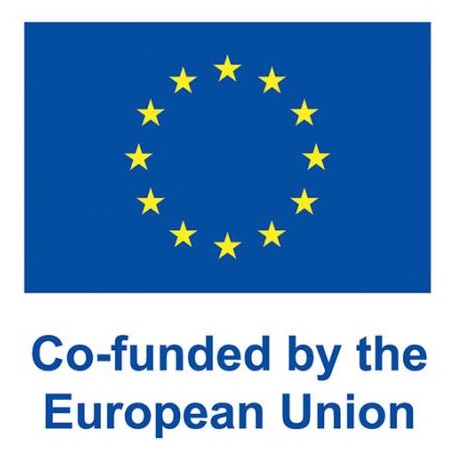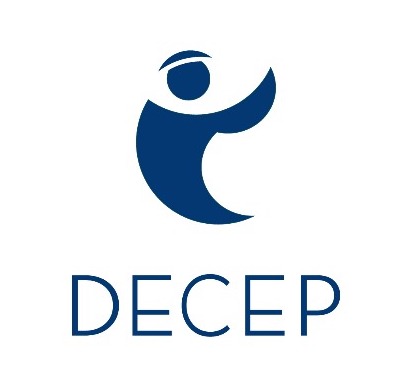
 DECEP - Development of Early Childhood Educational Programs in Georgian Universities
DECEP - Development of Early Childhood Educational Programs in Georgian Universities
Project Number: 101179491
Project Vision and Core Values
The project’s core values—Care, Wellbeing, and Development—were articulated at the Kick-off meeting. These principles are not only aligned with global trends in Early Childhood Education (ECE), but also serve as the ethical and pedagogical foundations for the design of both the Bachelor’s (BA) and Professional Development (PD) programs to be developed within the project. They will guide every stage of curriculum design, implementation, and evaluation, and reflect a holistic understanding of child-centered education.
Context
In 2023, Georgia had 1,647 state-operated kindergartens and early childhood education (ECE) institutions, with an average child-to-teacher ratio of approximately 10:1. In many groups of children under five, 30–35 children are managed by only one teacher and one caregiver, highlighting a significant personnel shortage, particularly in regional areas. Beyond this quantitative challenge, concerns exist regarding the professional development of pre-service teachers and the scarcity of modern teaching resources.
Increased awareness within the ECE community has also drawn attention to children with special needs, underscoring the urgent need for trained specialists in early inclusive education. Ensuring active engagement and holistic development of children from an early age is crucial to mitigating developmental delays.
Regions predominantly inhabited by ethnic minorities face additional barriers, primarily due to limited proficiency in the state language. Early language instruction in naturalistic settings, starting in kindergarten, has proven effective in facilitating children’s integration into society.
These structural and qualitative challenges impede the provision of sustainable, high-quality ECE. Quality early education is essential for the cognitive, social, and physical development of future generations and their successful adaptation to society. Establishing ECE programs at the university level, alongside systematic training and retraining of relevant personnel, is a critical step toward addressing these challenges.
While sectoral characteristics have been endorsed, the Public Defender of Georgia recommends the development of higher education programs in ECE aligned with international standards. Currently, Bachelor’s (BA) and short-term professional development (PD) programs in Georgian universities have not been established widely. Incorporating mandatory modules on multilingual education, inclusive education, and early developmental stimulation is essential to train multifunctional specialists equipped to meet diverse ECE needs.
Project Purpose
The “Development of Early Childhood Educational Programs in Georgian Universities” (DECEP) project aims to support the development and implementation of high-quality ECE policies through the creation of university-level BA and PD programs, professional training of staff, and alignment with international best practices.
Overall Objectives
- Develop ECE Programs: Design BA and professional development (PD) programs in ECE, leveraging best practices and expertise from European partners (VU, UT).
- Digital Transformation: Integrate digital tools, resources, and methodologies into ECE curricula to enhance teaching quality, promote holistic development, and prepare staff for the digital age.
- Strengthen Collaboration: Build effective partnerships between higher education institutions and the ECE community to ensure practical relevance and sustainability.
- Advocacy and Policy Engagement: Raise awareness among policymakers, practitioners, and parents about the importance of ECE, supporting institutionalization of initial and lifelong professional education programs.
- Ensure Inclusive Access: Promote equitable access to high-quality, inclusive, and developmentally appropriate early learning opportunities for all children in Georgia.
Project Coordination and Partnership
Coordinator: Ivane Javakhishvili Tbilisi State University, Faculty of Psychology and Educational Sciences (Georgia)
Partners:
- Samtskhe-Javakheti State University (Georgia)
- Iakob Gogebashvili Telavi State University (Georgia)
- Ministry of Education, Science, and Youth of Georgia
- University of Tartu (Estonia)
- Vilnius University (Lithuania)
Through this multi-stakeholder, cross-border collaboration, the project ensures that all children in Georgia have access to high-quality, inclusive, and developmentally appropriate early learning opportunities.
Main Achievements / Outcomes
- Kick-off Meeting: The project mission, values, and objectives were formally adopted. Future plans and activities were discussed and agreed upon by all partners.
- Study Tours to Vilnius University and Tartu University Narva College: Project participants explored ECE policies in Estonia and Lithuania, examined BA programs and curricula, visited local kindergartens, and engaged in knowledge-sharing sessions on best practices in early childhood education.
- Training for Project Participants: Multiple training sessions were conducted covering multilingual education, language teaching in ECE programs, ECE educator competencies, and social-emotional learning strategies and activities. These trainings strengthened participants’ capacity to deliver high-quality ECE instruction.
- Development of BA and PD Programs: The curricula, program designs, syllabi, and readers for both Bachelor’s (BA) and professional development (PD) programs were developed and finalized, and are now prepared for final review and polishing.
Outcomes:
- Project participants gained enhanced knowledge and practical experience in international ECE policies and pedagogical approaches.
- The BA and PD programs in ECE are fully designed, incorporating multilingual, inclusive, and developmentally appropriate modules.
- Training strengthened the professional capacity of academic staff and future ECE educators.
- Knowledge transfer from European partners established a foundation for sustainable implementation of high-quality ECE programs in Georgian universities.
Results / Expected Impact
- The project directly benefits HEI staff, ECE educators, and the broader ECE community.
- Anticipated results include:
- Development of high-quality ECE curricula.
- Enhanced access to digital ECE resources.
- Increased number of qualified ECE educators.
- Greater awareness and engagement within the ECE community.
- Strengthened and improved national ECE system.
Tangible Outputs
- Three BA programs in Early Childhood Education.
- Three professional development (PD) programs for ECE educators.
- One Learning Management System (LMS) to support program delivery.
- One Open Educational Resources (OER) database for teaching and learning materials.
- Establishment of an inter-university network to promote collaboration and knowledge-sharing.

 FACULTY OF EXACT AND NATURAL SCIENCES
FACULTY OF EXACT AND NATURAL SCIENCES
 FACULTY OF HUMANITIES
FACULTY OF HUMANITIES
 FACULTY OF SOCIAL AND POLITICAL SCIENCES
FACULTY OF SOCIAL AND POLITICAL SCIENCES
 FACULTY OF PSYCHOLOGY AND EDUCATIONAL SCIENCES
FACULTY OF PSYCHOLOGY AND EDUCATIONAL SCIENCES
 FACULTY OF ECONOMICS AND BUSINESS
FACULTY OF ECONOMICS AND BUSINESS
 FACULTY OF MEDICINE
FACULTY OF MEDICINE
 FACULTY OF LAW
FACULTY OF LAW



